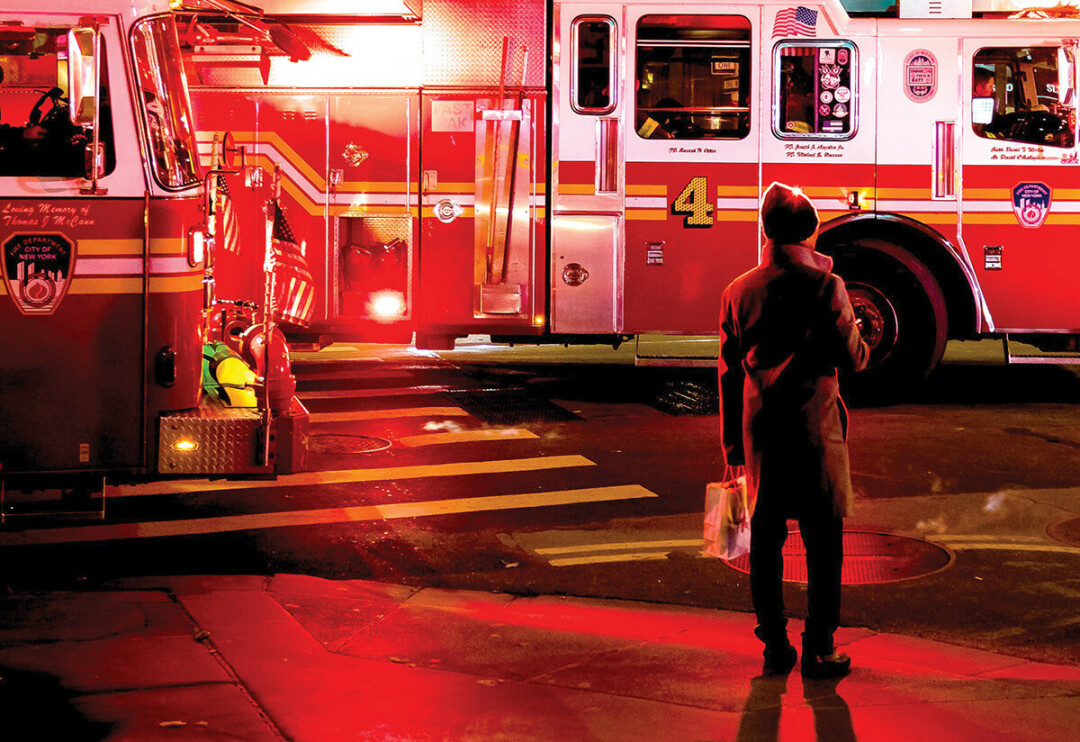In the Mix: Disability and Disaster
even during a simulation, emergency responders can learn from those with real disabilities

Every four years emergency medical and law enforcement conduct an in-person disaster drill of some sort in Eau Claire. Most recently, it was a simulated plane crash at the Chippewa Valley Regional Airport. City, county, and township responders from a couple of local counties take part and they recruit citizens to be the “victims.” I volunteered and got three friends with varying abilities and disabilities to volunteer, too.
After lying in a field for about an hour (even though I had a broken leg and a head wound), I was given an ambulance ride for a few minutes and then released from the exercise and fed pizza. Calvin, my Seeing Eye Dog, stayed calmly by my side throughout the exercise. Both he and I hope it’s our last ambulance ride until we do it again in four years.
”
Calvin, my Seeing Eye Dog, stayed calmly by my side throughout the exercise. Both he and I hope it’s our last ambulance ride until we do it again in four years.

KATHERINE SCHNEIDER
The slow response to our group (all tagged as high priority), and the seeming lack of organization makes me realize that emergency responders really do need to do these drills. I’m sure they’re time-intensive to organize and pull off, but I’d vote for them doing them more often. Calvin agrees because he got the last bite of my pizza and has my wrist band to put in his brag book.
For those of you with disabilities, if you can, please find your local emergency planning agency and volunteer to be a victim. The first responders really need real people with disabilities to participate and give feedback. The responders are good, caring people, but may well have no training on disability do’s and don’ts. Also, plan your top three bullet points for how to deal with you as a person with a disability. My three are:
- Don’t separate me from my service dog, and if you have to, hold his leash at all times.
- Tell me what you’re doing; don’t just grab and manhandle me.
- Let me take your elbow; don’t push me in front of you.
You can help make the next disaster in your town go better for all citizens. Stay safe out there!
Katherine Schneider is a retired clinical psychologist, an author, and member of the Eau Claire County Board, where she is running unopposed for another term. She blogs at kathiecomments.wordpress.com and can be reached at schneiks@uwec.edu.


















